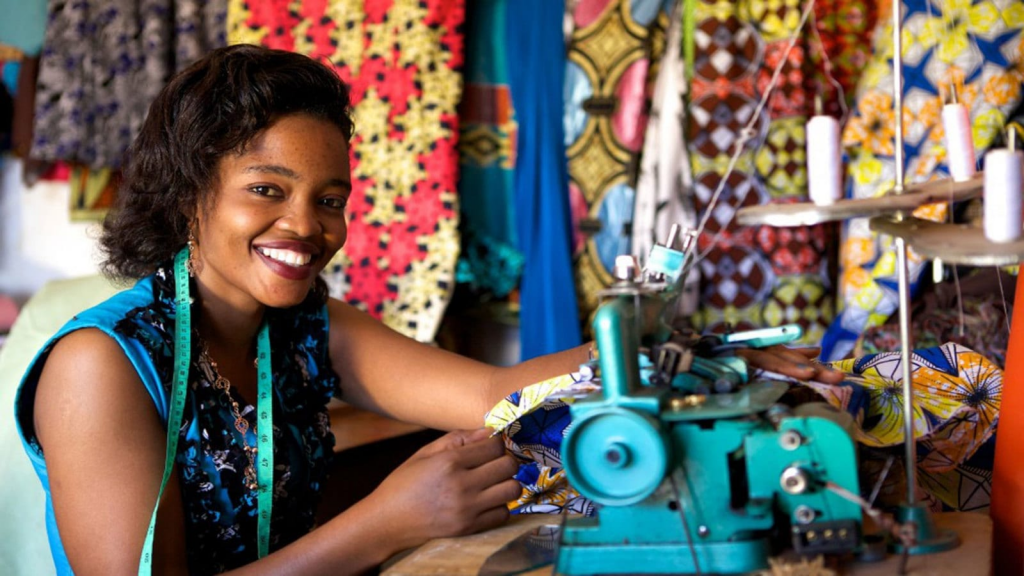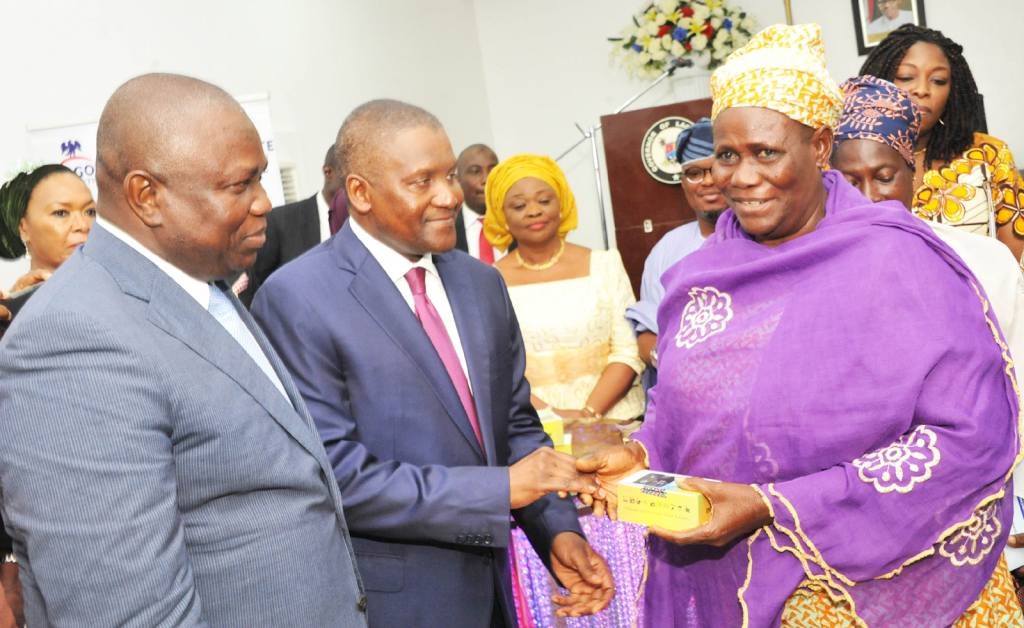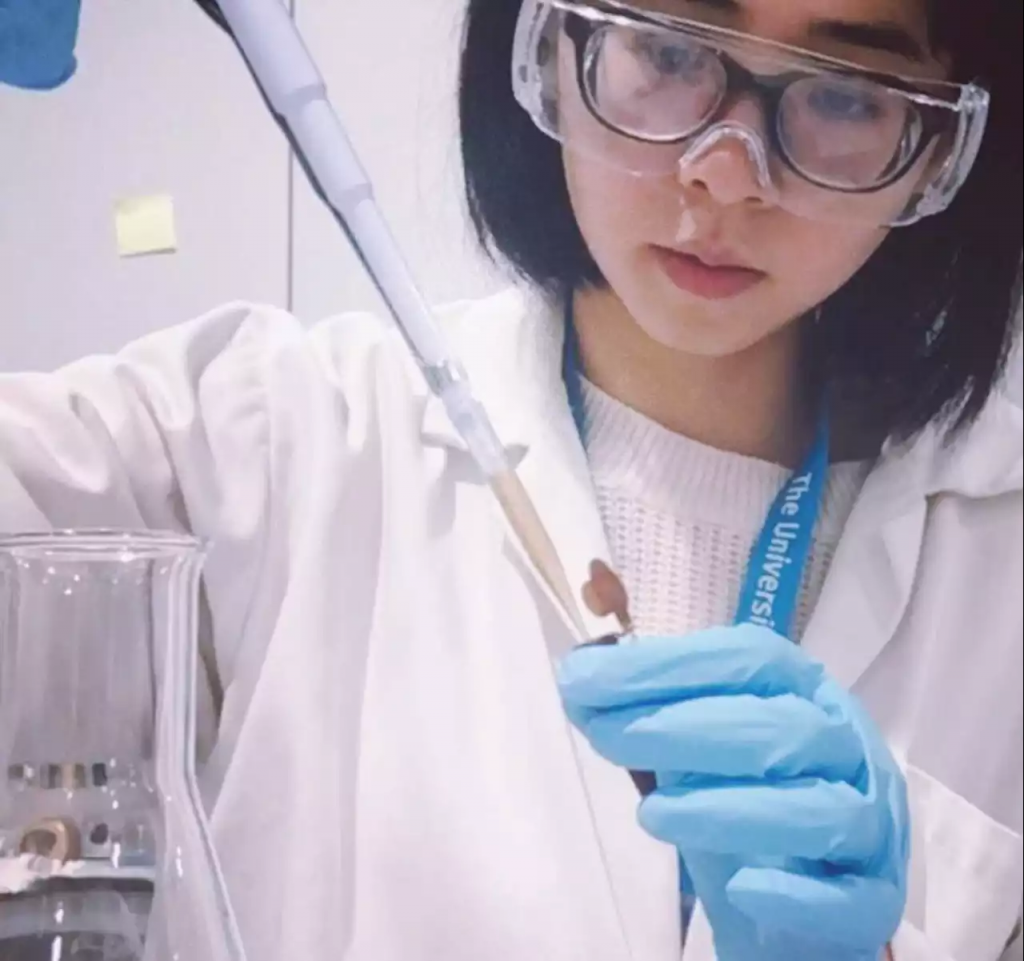By Kembet Bolton I am sorry. If you’re a woman, there’s a good chance you use this phrase a lot—in fact, you may use it way too much. That’s not your fault. Women are taught and socialized to say sorry—to feel sorry—whether they’re in the wrong or not. It’s a form of deference, and it’s a way of making ourselves smaller or just appeasing. And even though it becomes such an ingrained part of our vocabularies that we often apologize when we are not wrong. It’s not good for us—and it’s not good for our relationships, romantic and otherwise. Because all too frequently, those apologies aren’t real apologies at all. They’re said out of a sense of duty or awkwardness, to stop someone from getting angry or to hide the fact that we’re angry ourselves. So, it’s time to take a little inventory of our “I’m sorry” habit—and look at…
Kenya: NSE to Increase Women Representation on Boards and Management Minimum 30%
The Nairobi Securities Exchange (NSE) has joined the 30% club, a global campaign to take action to increase gender diversity in boards and senior management within the workplace, cementing its commitment to enhance gender equality in corporate leadership in Kenya. By joining the 30% club, the NSE will champion for at least 30% representation of women on boards and senior management of companies listed on the NSE and within the larger Capital Markets. Geoffrey Odundo, CEO, NSE said, “We are delighted to join the 30% club as we continue to spearhead gender equality and inclusion in Boards and Senior Management of listed companies. This milestone underscores our commitment to supporting companies leverage on various aspects of diversity to enhance business capabilities in a rapidly changing operating environment.” Zuhura Ogada, CEO, New Revenue Solutions Africa, stewards of 30% Club East Africa said, “We are happy about this collaboration with the NSE and…
8 African Women against the Practice of Female Genital Mutilation
By Miracle Nwankwo The practice of female genital mutilation is a common tradition is some parts of the world. “Although primarily concentrated in 30 countries in Africa and the Middle East, female genital mutilation is a universal problem and is also practiced in some countries in Asia and Latin America. Female genital mutilation continues to persist amongst immigrant populations living in Western Europe, North America, Australia and New Zealand,” the United Nations says. Female genital mutilation (FGM) also known as female genital cutting or female circumcision is the procedure of altering or injuring the female genitalia for non-medical reasons and this practice is globally recognized as a violation of the human rights, the health and the integrity of girls and women. The fight against FGM is to protect women and girls from the short-term and long-term complications of this practice, because we believe that no human deserve to be meted such…
Lesotho: Basotho Women Excel in Farming despite Patriarchal Norms
Women in Lesotho have always played a major role in food production albeit at a subsistence level. In this patriarchal and gendered society, it is inculcated into every female- from toddlers as young as five years to great grandmothers- that theirs is to till the land and put food on the table for their families. Despite their prowess in farming, most women hardly venture into commercial farming, thanks to the patriarchal system and its attendant customary law precepts which deny women ownership of the land. While the battle continues for the enactment of laws to fully empower women and give them equal access to land as their male counterparts, a new breed of female commercial farmers is gradually emerging. Thirty-six-year-old Thakane Mphatsoane is one such woman blazing the trail and leading the way for female entrepreneurs in this male-dominated sector. Hailing from the tiny village of Ha Molengoane, Nazareth in…
AfDB, African Guarantee Fund Unlocks US$2bn Loans for Women-owned SMEs
THE African Development Bank (AfDB) through its ‘Affirmative Finance Action for Women in Africa (AFAWA) initiative has partnered with the African Guarantee Fund to unlock between US$1,3 billion and US$2 billion in loans for the continent’s women-owned Small to Medium Enterprises. AfDB said the move signals the launch of AFAWA’s Guarantee for Growth (G4G) programme, which seeks to make available up to US$3 billion in financing for women entrepreneurs through de-risking and technical assistance measures. “The AfDB’s Affirmative Finance Action for Women in Africa (AFAWA) programme has agreed a to partnership with the African Guarantee Fund (AGF) to unlock US$1.3 to US$2 billion in loans to women-owned small and medium-sized enterprises in Africa, by working with financial institutions to enhance their ability to lend to women,” said the regional financial institution. Already, financial institutions in countries such as Cameroon, Democratic Republic of Congo, Kenya, Rwanda, Tanzania and Uganda have signed…
Nigeria: Dangote Foundation Disburses N3.9b to Women in 11 states
In efforts to better the lives of women in Nigeria, Aliko Dangote Foundation (ADF) has disbursed the sum of N3.924 billion to 392,490 women and youths across Kano, Jigawa, Kogi, Adamawa, Borno, Yobe, Lagos, Niger, Nasarawa, Sokoto and Katsina state as part of its microgrant programme. Also, the Foundation has concluded plans to extend the disbursement of the micro-grant program to Ogun, Osun, Kwara, Edo, Rivers, Anambra, Ebonyi and Bauchi states as part of the next phase of this programme. A breakdown of the disbursement shows that N880 million was distributed to 88,000 women in Kano State; 27,000 women received N270 million in Jagawa state; 22,000 women received N220 million in Kogi State; 31,500 women and youth collected N315 million in Adamawa; 54,000 Women and youth got N540 million in Borno State. Furthermore, 40,000 women received N400 million in Lagos; 25,000 women received N250 million in Niger; 13,000 received N130 Million in Nassarawa; 23,990 women benefitted from the…
British Council Partners with Leading UK Universities to Support Malaysian Female Students in STEM
The British Council has launched a postgraduate scholarship programme in partnership with three leading UK universities — University of Glasgow, Liverpool John Moores University and the University of Stirling, aimed at benefiting Southeast Asian women with a background in science, technology, engineering or mathematics (STEM). According to UNESCO, fewer than 30 percent of researchers worldwide are women and only 30 percent of female students select STEM-related fields in higher education. The British Council seeks to increase this number by establishing programmes to support women in STEM around the world, from inspiring young girls to stay in the field to supporting working women in STEM to reach positions of leadership. Its latest programme provides fifteen full scholarships to women from Cambodia, Indonesia, Laos, Malaysia, Myanmar, Philippines, Thailand and Vietnam who can demonstrate their need for financial support and who wish to inspire future generations of women to pursue careers in STEM. The scholarships will cover full tuition…







